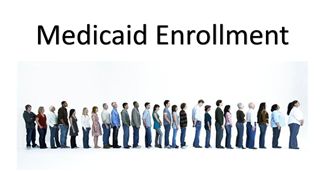MM Curator summary
PA has seen a 10.6% increase in Medicaid enrollment during the pandemic and a 5.6% increase in SNAP.
The article below has been highlighted and summarized by our research team. It is provided here for member convenience as part of our Curator service.
HARRISBURG, PA — Department of Human Services (DHS) Secretary Teresa Miller is reminding Pennsylvanians that safety-net programs like Supplemental Nutrition Assistance Program (SNAP) and Medicaid are available to individuals and families who are struggling to afford food or access health care. Secretary Miller also discussed recent SNAP changes that will help individuals and families amidst the continuing public health crisis and heightened unemployment.
“We all deserve the dignity of having those most essential needs met, especially when we fall on hard times. That’s why DHS is here, regardless of the pandemic, to make sure you can get through times like these,” said DHS Secretary Teresa Miller. “Our public assistance network can be a lifeline that makes sure people can go to the doctor, have enough to eat, or pay their utilities as other bills and needs arise. This network exists to help you through any change in your circumstances, whether it’s a loss of employment or a reduction in income. No one should feel like they have to endure this period and its stress, anxiety, and uncertainty alone. If you or someone you know could use a hand, please let us try to help.”
Enrollment statewide for Medicaid has increased by 300,076 people since February 2020, for a total enrollment of 3,131,639 people in November — a 10.6 percent increase.
Pennsylvanians who have lost health coverage or are currently uninsured and need coverage for themselves or their children may qualify for coverage through Medicaid or the Children’s Health Insurance Program (CHIP). Medicaid and CHIP provide coverage for routine and emergency health services, tests and screenings, and prescriptions, and COVID-19 testing and treatment are covered by Medicaid and CHIP. Medicaid and CHIP enroll individuals throughout the year and do not have a limited or special enrollment time, so people needing health coverage can apply for these programs at any time. There are income limits for Medicaid, but all children qualify for comprehensive health, vision, and dental coverage through CHIP regardless of their parents’ income. Children who are not income-eligible for Medicaid are automatically referred to CHIP for coverage.
Enrollment for SNAP statewide has increased by 96,549 people since February 2020, for a total enrollment of about 1,834,008 in November — a 5.6 percent increase.
SNAP helps more than 1.8 million Pennsylvanians purchase fresh food and groceries, helping families with limited or strained resources be able to keep food on the table while meeting other bills and needs. Inadequate food and chronic nutrient deficiencies have profound effects on a person’s life and health, including increased risks for chronic diseases, higher chances of hospitalization, poorer overall health, and increased health care costs. As the nation faces the COVID-19 pandemic, access to essential needs like food is more important than ever to help keep vulnerable populations healthy and mitigate co-occurring health risks.
Congress has temporarily increased the SNAP maximum benefit allotment by 15 percent through the recently-signed federal government funding bill. This change affects every SNAP recipient in the commonwealth and is effective from January 1, 2021, through June 30, 2021. Below is the new SNAP maximum monthly allotment based on household size:
Additionally, Federal Pandemic Unemployment Compensation (FPUC) will no longer be counted as income for people applying for SNAP eligibility, opening SNAP as an option for more people who have lost income or employment due to the pandemic.
“We are thankful for these rule changes, as those with the lowest income that were receiving the maximum SNAP benefits did not see an increase in their benefits during the pandemic and economic downturn. This not only hurt our lowest-income neighbors, but our communities, as charitable food networks were overburdened. This is incredibly helpful for our lowest-income families and others who are going through difficult times,” said Secretary Miller. “If you were previously ineligible for SNAP because of pandemic unemployment assistance, I strongly urge you to apply again and let this program help with one essential need.”
Applications for SNAP, Medicaid, and other public assistance programs can be submitted online at www.compass.state.pa.us. Those who prefer to submit paper documentation can print from the website or request an application by phone at 1-800-692-7462 and mail it to their local County Assistance Office (CAO) or place it in a CAO’s secure dropbox, if available. You do not need to know your own eligibility in order to apply. While CAOs remain closed, work processing applications, determining eligibility, and issuing benefits continues. Clients should use COMPASS or the MyCOMPASS PA mobile app to submit necessary updates to their case files while CAOs are closed.
Pennsylvanians who need health insurance who do not qualify for Medicaid can explore coverage options through Pennie, the commonwealth’s health insurance exchange. Open enrollment for 2021 plans continues through January 15, 2021. Pennsylvanians can learn more at www.pennie.com. Applicants not financially eligible for Medicaid are automatically referred to Pennie for eligibility review.
For more information about food assistance resources for people around Pennsylvania impacted by COVID-19 and the accompanying economic insecurity, visit the Department of Agriculture’s food security guide.
For more information on public assistance programs, visit www.dhs.pa.gov.

